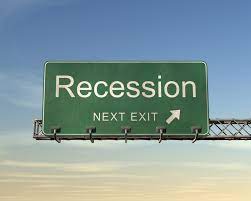
The macroeconomic outlook is rapidly deteriorating, putting the US economy in jeopardy with the Federal Reserve tightening its monetary policy with the aim of keeping rising inflation in check, said to Bank of America (BofA) strategists in a weekly research note to clients.
"'Inflation shock' worsening, 'rates shock' just beginning, 'recession shock' coming", BofA chief investment strategist Michael Hartnett wrote in a note to clients.
Cash, volatility, commodities, and crypto currencies, he continued, might beat bonds and stocks in this setting.
As it confronts inflation at a four-decade high, the Federal Reserve signalled on Wednesday that it will likely start culling assets from its $9 trillion balance sheet at its meeting in early May, doing so at about double the speed it did in its previous "quantitative tightening" operation.
A huge majority of investors anticipate a 50 basis point raise in the central bank's benchmark interest rate.
In terms of notable weekly flows, BofA said that emerging market equity funds received $5.3 billion in the week to Wednesday, the largest inflow in 10 weeks, while emerging market debt vehicles received $2.2 billion, the greatest week since September.
European equities experienced their eighth week of outflows, totaling $1.6 billion, while U.S. stocks saw their second week of inflows, totaling $1.5 billion.
According to Hartnett, the S&P 500 will fall below 4,000 this year, while the 30-year Treasury yield will increase above 4 per cent in 2023.
They also expect the ISM manufacturing index to drop below 50, EPS growth to slow by the end of the year, and cryptocurrency to outperform bonds.
The market is "extremely recessionary," according to Hartnett, who noted that homebuilders are down 30 per cent, semiconductors (SMH) are down 23 per cent, small caps are down 20 per cent, retail is down 20 per cent, and private equity is down 19 per cent.
WTI and Brent are now trading at levels observed prior to Ukraine's invasion.
In a recession, you should expect to see disconnects such as yields rising and banks falling, rates rising and reopening stocks falling, utilities rising and transportation falling, and a steepening yield curve before the recession starts, he said.
This week, Deutsche Bank announced that their base case now predicts a recession in late 2023.
(Source:www.reuters.com)
"'Inflation shock' worsening, 'rates shock' just beginning, 'recession shock' coming", BofA chief investment strategist Michael Hartnett wrote in a note to clients.
Cash, volatility, commodities, and crypto currencies, he continued, might beat bonds and stocks in this setting.
As it confronts inflation at a four-decade high, the Federal Reserve signalled on Wednesday that it will likely start culling assets from its $9 trillion balance sheet at its meeting in early May, doing so at about double the speed it did in its previous "quantitative tightening" operation.
A huge majority of investors anticipate a 50 basis point raise in the central bank's benchmark interest rate.
In terms of notable weekly flows, BofA said that emerging market equity funds received $5.3 billion in the week to Wednesday, the largest inflow in 10 weeks, while emerging market debt vehicles received $2.2 billion, the greatest week since September.
European equities experienced their eighth week of outflows, totaling $1.6 billion, while U.S. stocks saw their second week of inflows, totaling $1.5 billion.
According to Hartnett, the S&P 500 will fall below 4,000 this year, while the 30-year Treasury yield will increase above 4 per cent in 2023.
They also expect the ISM manufacturing index to drop below 50, EPS growth to slow by the end of the year, and cryptocurrency to outperform bonds.
The market is "extremely recessionary," according to Hartnett, who noted that homebuilders are down 30 per cent, semiconductors (SMH) are down 23 per cent, small caps are down 20 per cent, retail is down 20 per cent, and private equity is down 19 per cent.
WTI and Brent are now trading at levels observed prior to Ukraine's invasion.
In a recession, you should expect to see disconnects such as yields rising and banks falling, rates rising and reopening stocks falling, utilities rising and transportation falling, and a steepening yield curve before the recession starts, he said.
This week, Deutsche Bank announced that their base case now predicts a recession in late 2023.
(Source:www.reuters.com)





